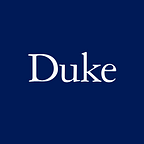Bayer takeover of Monsanto a taboo-breaking moment for Germany
By: Stefani Engelstein
If Bayer’s takeover of Monsanto clears the regulatory bodies, it will represent a taboo-breaking moment in Germany that will force many to rethink their national identity.
Not only does Germany have a visceral commitment to environmental sustainability and an aversion to chemical and genetic interventions, but Germans are deeply uncomfortable with globalization itself.
Monsanto’s most profitable products are held to be unethical by many Germans – the glyphosate-based herbicide Round-Up, for which evidence of a carcinogenic effect has been conflicting, and food crops genetically modified for a number of qualities including its tolerance of Round-Up.
It is illegal to grow genetically modified crops across much of the EU, and groceries with genetically modified ingredients have been banned in Germany.
Moreover, with more than 30 percent of energy coming from renewable sources and a simultaneous commitment to phase out nuclear energy by 2022, Germany is one of the world leaders in alternative energy.
Beyond these numbers, though, Germans have embraced environmentalism on a personal level hard to fathom in the comfort-oriented United States.
Germans regularly sort refuse into up to six different categories of recycling. They generally don’t own clothes dryers, and they pause their showers while soaping and shampooing to save water -- a chilling experience in the winter given German norms for temperature setting.
Moreover, globalization itself raises hackles in Germany as a form of neo-colonialism that suppresses local cultural priorities and exploits poorer and less-developed countries to enrich the few.
While these aversions are not unique to Germany, there exists a particular intensity surrounding these issues that’s tied to its attempts to come to terms with national guilt.
Environmentalism arose across Western Europe and the United States in the late 1960s and 1970s as part of a broad social rebellion and ethical stocktaking. This youth rebellion in West Germany, however, was coupled with a demand that the country break a generation of silence about German genocide during the Holocaust, exposing the crimes of the previous generation and attempting to root out war criminals in positions of power.
The environmental and peace movements and eventually the anti-globalization movement not only took on a pronounced ethical imperative, but in the following decades provided a way for Germans to feel proud of their actions on a world stage and to ground an identity without resort to ethnic nationalism.
The same motivation can be felt in the high standard Germany has set in the past year for accepting refugees from Syria and other crisis areas – a standard that puts the United States to shame -- although we are now seeing a troubling rise in nationalist political parties there.
Like this political shift, Bayer’s purchase of Monsanto will shake the vision of priorities and values embraced by post-‘60s and then a post-reunified Germany.
As the largest takeover by a German company of a non-German company in history, the merger places Germany visibly in the forefront of global capitalism. Bayer has had its own recent controversies – it produces neonicotinoid pesticides that have been linked to the decline of bee populations, for example.
But its biggest ethical transgression lies further in the past. Bayer was one of a number of chemical companies that banded together to create I. G. Farben in 1925, the chemical giant that went on to produce the poison Zyklon B for the gas chambers and to use concentration camp inmates as forced labor. Bayer re-emerged as a smaller chemical and pharmaceutical company after I. G. Farben’s disbanding by the Allies.
That Bayer would dare a takeover of a company the Frankfurt daily newspaper has called among “the most hated” and the Munich daily has called among “the most feared” companies in the world is a sign that Bayer itself trusts the power of forgetfulness.
The deal is part of a slow creep by Germany toward “normalization” as a country, in which it behaves with the same disregard to communal ethics as other nations.
Stefani Engelstein is an associate professor of Germanic Languages and Literature at Duke University.
Versions of this post were originally published in The News & Observer and Haaretz.
